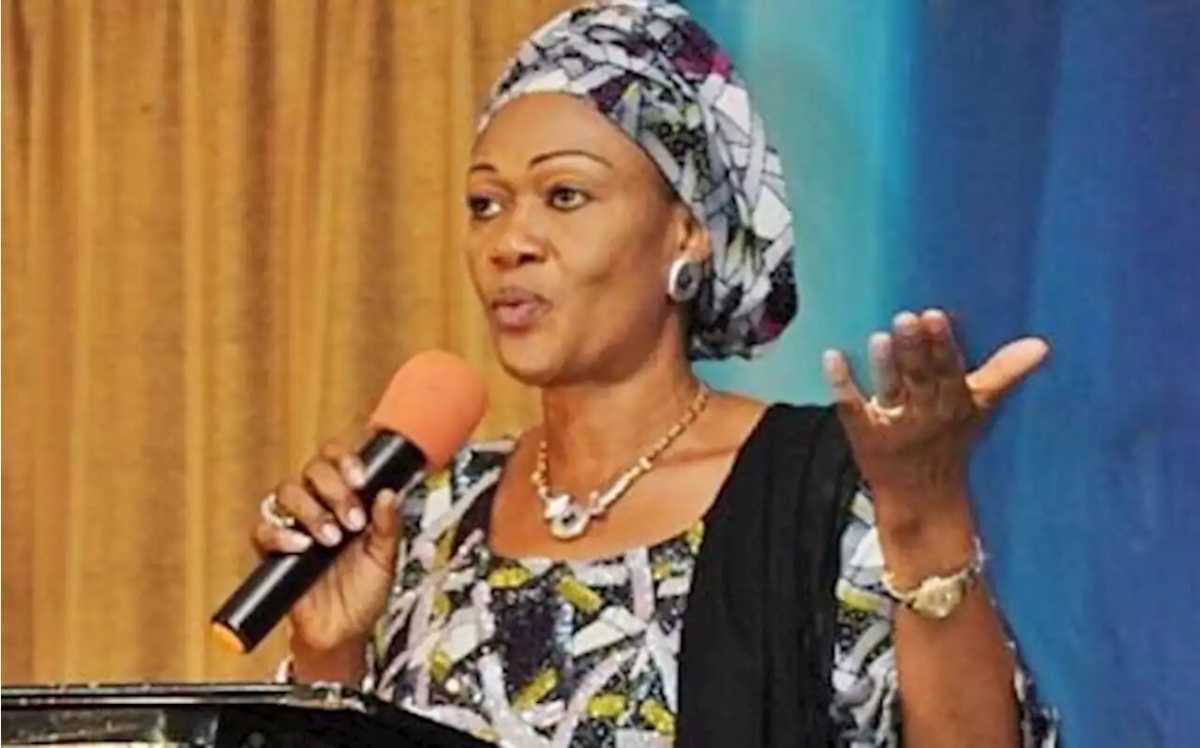Nigeria
Tinubu’s wife urges collaboration to eliminate Female Genital Mutilation

To ensure that female genital mutilation (FGM) is eradicated in Nigeria by 2030, First Lady Oluremi Tinubu has appealed for everyone to take proactive measures.
During the UN Population Fund (UNFPA) and UNICEF joint programme on the eradication of female genital mutilation (FGM), Mrs. Tinubu made this request in Abuja on Tuesday.
Because female genital mutilation (FGM) involves changing or hurting female genitalia for non-medical purposes, she said, it is regarded globally as a violation of human rights against girls and women.
“Approximately 230 million women and girls worldwide had undergone female genital mutilation as of 2023, and an additional 68 million girls are at risk of undergoing this practice between 2015 and 2030,” the World Health Organisation reports.
Nigeria is home to roughly 10% of the world’s survivors of female genital mutilation (FGM) and has the third-highest rate of FGM worldwide.
This suggests that Nigeria will be crucial in “fulfilling the global promise” to eradicate FGM by 2030.
Women and girls suffer grave consequences from female genital mutilation (FGM) in a number of ways. In terms of the body, it results in discomfort, infections, irregular urine patterns, and difficulties giving delivery.
Read Also: Tinubu’s wife praises Super Falcons for ending 16-year curse in Paris 2024 qualifier
It causes low self-esteem and betrayal feelings emotionally; mentally, it can cause anxiety, sadness, and post-traumatic stress disorder.
“With time, these negative consequences impair women’s general well-being, limit their ability to exercise their rights, and prevent them from reaching their full potential.
Therefore, it is imperative to step up advocacy activities in order to put an end to this detrimental practice.
She claims that the greatest worldwide programme to end FGM has been spearheaded by UNFPA and UNICEF since 2008.
“Even though there has been a significant reduction in the frequency among women, from 25% to 20%, there is still more work to be done, and each of us has a vital role to play.
“It is my mandate that we work together with the spouses of Nigerian state governors and other relevant parties to confront this detrimental behaviour,” Mrs. Tinubu stated.
She suggested raising awareness and enhancing education through community involvement, health outreach programmes, and media campaigns in order to eradicate misunderstanding about dangerous habits.
“Secondly, in order to assist survivors reclaim their dignity, we must empower them by offering them full medical, legal, and psychological support.
Third, despite the fact that the Violence Against Persons Prohibition Act of 2015 and the Child’s Rights Act of 2003 represent major legal advancements, enforcement of these laws is still uneven.
Therefore, it is imperative that we make sure these laws are fully enacted, publicised, and upheld.
“Lastly, we should build alliances with young people, civic society, faith-based organisations, and the government in order to promote collaborations with women’s groups and other organisations.
She declared, “This partnership will support the mobilisation of resources, exchange of best practices, and development of a long-lasting movement against female genital mutilation and gender-based violence.”
Additionally, Mrs. Uju Rochas-Anwulah, Senior Adviser on Public Health, Office of the VP, speaking on behalf of Vice President (VP) Kashim Shettima, stated that it was critical to tackle the threat at the local level.
“The dignity of a Nigerian child is important; our constitution has granted her this second ride, and it is our collective responsibility to work together for her protection,” Shettima stated.
“our assembly serves as a reminder to the public that we have not abdicated our role as our country’s conscience, eyes, and voices.
“We need to strike a balance between the past and the present, between culture and reality, and between the two so that the change we want can be attained through certain values.
“I’m prepared to work with you to end FGM, but everyone must be involved, including the traditional leaders and community leaders.”
The vice president went on to say that facilities and healthcare institutions would be provided by the federal government to assist FGM survivors.
